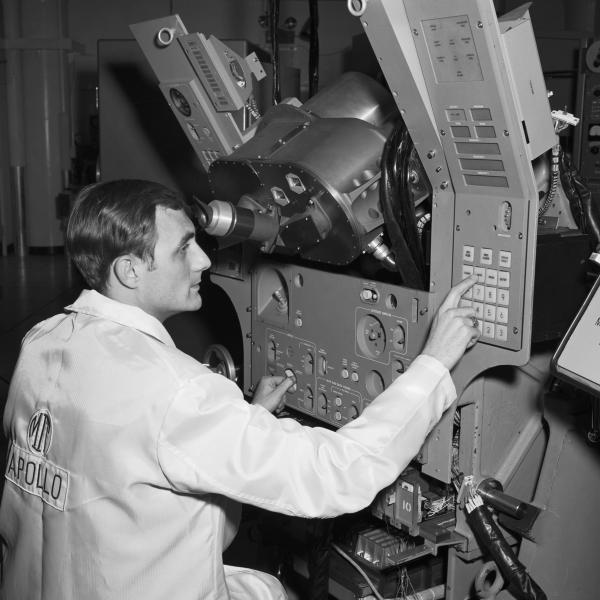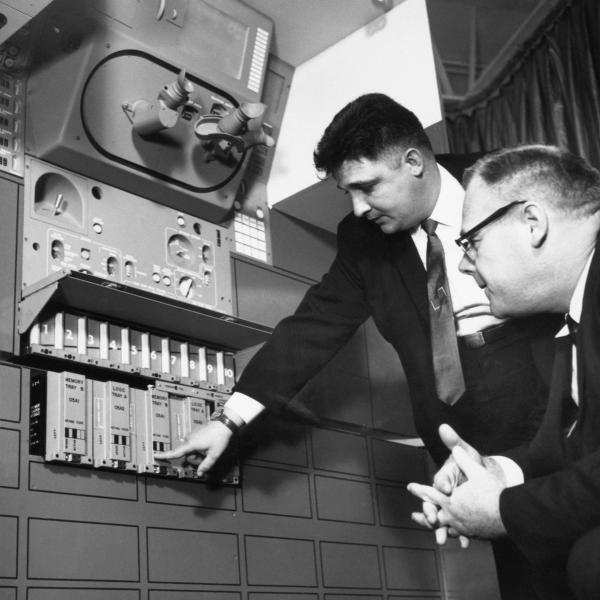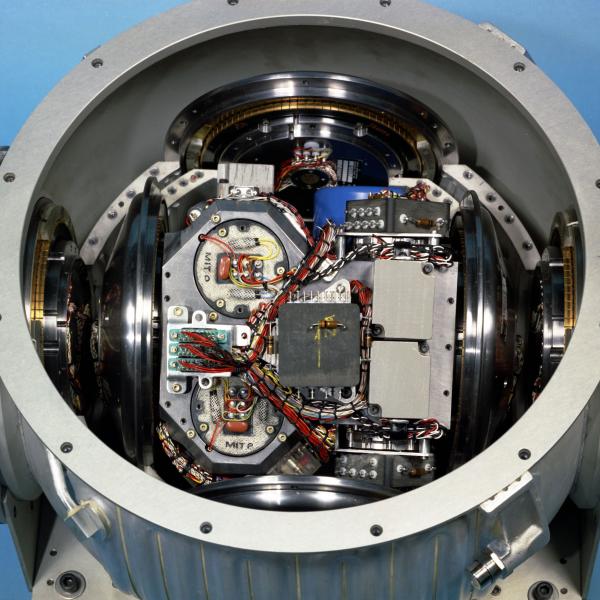
George Schmidt
George Schmidt joined the IL as an intern during his sophomore year of college in 1961. He completed three degrees by 1971, with his education and research focused on the technology and advancements made in the Apollo program. One such project was applying Kalman filtering algorithms to the Apollo inertial measurement unit, which earned him a position on the technical staff and allowed him to both train astronauts and monitor the guidance system in Cape Kennedy before every Apollo missions launch.
After receiving his doctorate in 1971, Schmidt refocused his efforts on the Air Force programs at Draper. He worked on synthetic aperture radars (SAR), aircrafts, and avionics requirements for missiles. As GPS developed, he participated in panels to study GPS and how it could have less of a chance of being jammed while still being accurate. He also contributed to NATO research, presenting papers, lecturing, and organizing conferences. He was the Editor in Chief of the AIAA's Journal of Guidance, Control, and Dynamics from 1996-2013, reviewing papers and managing the Journal's growth.
In 1998, Schmidt was appointed the Education Director of Draper Labs. He oversaw graduate students as they completed their thesis research at the labs until 2007, when he retired; however, he still teaches at MIT. Schmidt was awarded the AIAA International Cooperation award in 2001 and the NATO Research and Technology Organization’s Kármán Medal in 2005. He is now a member of the Aerospace & Electronic Systems Society as both a fellow and on the Board of Governors.



